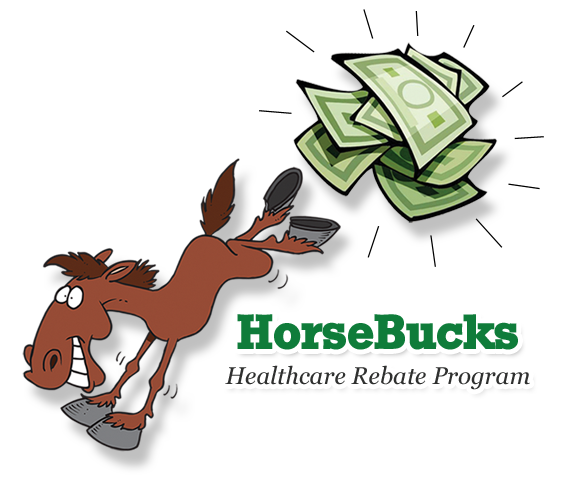Program Summary
The MFFH Equine Health Care Assistance Program is a rebate program designed to assist horse/equine owners who demonstrate financial need with the cost of necessary health care for their equines. Rebates will be issued to cover actual, documented out-of-pocket expenses incurred by the horse/equine owner. NOTE: Requesting assistance with a routine castration (“gelding”)? Complete the simpler “Horse Bucks Equine Gelding Program” application instead of this application.
FAQs
How will it be funded?
Who will qualify for rebates?
Who will not qualify for rebates?
Who will receive the rebate?
How will horse owners be required to establish financial need?
How often can a horse owner receive a rebate?
What dollar amount of rebates will be issued?
- Rebates of up to $200 will be issued for routine castration
- Rebates of up to $175 will be issued for euthanasia by pentobarbital injection
- Rebates of up to $200 will be issued for post-euthanasia disposal
- Rebates of up to $400 will be issued for cryptorchid surgery
What else do I need to know?
- Maryland Fund For Horses reserves the right to amend, revise or cancel the program and its procedures and requirements at any time without advance notice. Any changes will be made prospectively and approved applications and rebates will be honored under the terms in effect when the application was approved.
- All participants in the program will be required to sign a release allowing MFFH to contact references and relieving MFFH of any liability that may be a result from any documentation or personal information obtained in determining eligibility.
- All participants in the program will be required to sign a release relieving MFFH of any liability for the equine health care procedure(s) for which a rebate has been issued.
- To help expedite the processing of your application, please contact everyone who you provided as a reference to let them know that they will be contacted by a MFFH representative in conjunction with your application.
- Applications for rebates should be made prior to the health care service delivery, but in cases of emergency treatment, MFFH will consider rebate applications for services performed up to 30 days prior to the date the application is received, unless there are extenuating circumstances approved by an officer of MFFH.
- After you submit an application, if your rebate is approved you will receive a document via e-mail from Maryland Fund For Horses, indicating your equine’s name, the health care procedure and amount approved. You will not be eligible to receive a rebate without this document. If MFFH is unable to grant your request, you will receive a notice via e-mail advising you of that fact, and the reason(s) why your application was not approved.
- Rebates are valid only for the specific health care procedure or service defined in the application and are valid for one use only. All rebate approvals expire after 90 days.
- Individuals who wish to request more information or an application should contact Maryland Fund For Horses at mdfundforhorses@gmail.com
Example of How MFFH Calculates Health Care Rebates:
Situation: Your horse needs a medical procedure. You consult with several different veterinarians (and contact MFFH for help if necessary) to obtain the best price quote possible for the procedure. The quote you decide to go with is for $1,000 to perform the procedure. You submit an application to MFFH indicating that you can contribute $200 toward the total, requesting a $800 Horse Bucks rebate. Maryland Fund For Horses sends you an e-mail indicating that they will contribute up to a $800 rebate for the procedure. This means MFFH has confirmed and earmarked up to $800 of available Horse Bucks funds for your horse’s surgery. Does this mean that MFFH will pay $800 of the veterinarian’s bill, and that your maximum out-of-pocket expense is $200? Not necessarily. Please read the examples below to understand how rebates are calculated.
- Example 1: Everything goes exactly as planned. The veterinarian submits a bill for $1,000. Maryland Fund For Horses sends payment of $800 to the veterinarian and you pay the veterinarian for the balance of $200.
- Example 2: Everything goes as planned, but the veterinarian decides to discount the charges for his/her services on behalf of MFFH’s charitable involvement and submits a bill for $850. Maryland Fund For Horses sends payment of $650 to the veterinarian and you pay the veterinarian for the balance of $200.
- Example 3: A complication occurs and the final cost of the procedure ends up being $1,300. Maryland Fund For Horses’ share is limited to a maximum of $800 and pays the veterinarian that amount. You will be responsible for the balance of $500, unless you can negotiate a reduction in the amount of the charges in excess of $1,000 with the veterinarian.

Download Healthcare Rebate Program Documents (PDF)
(updated: 2/7/2024)
